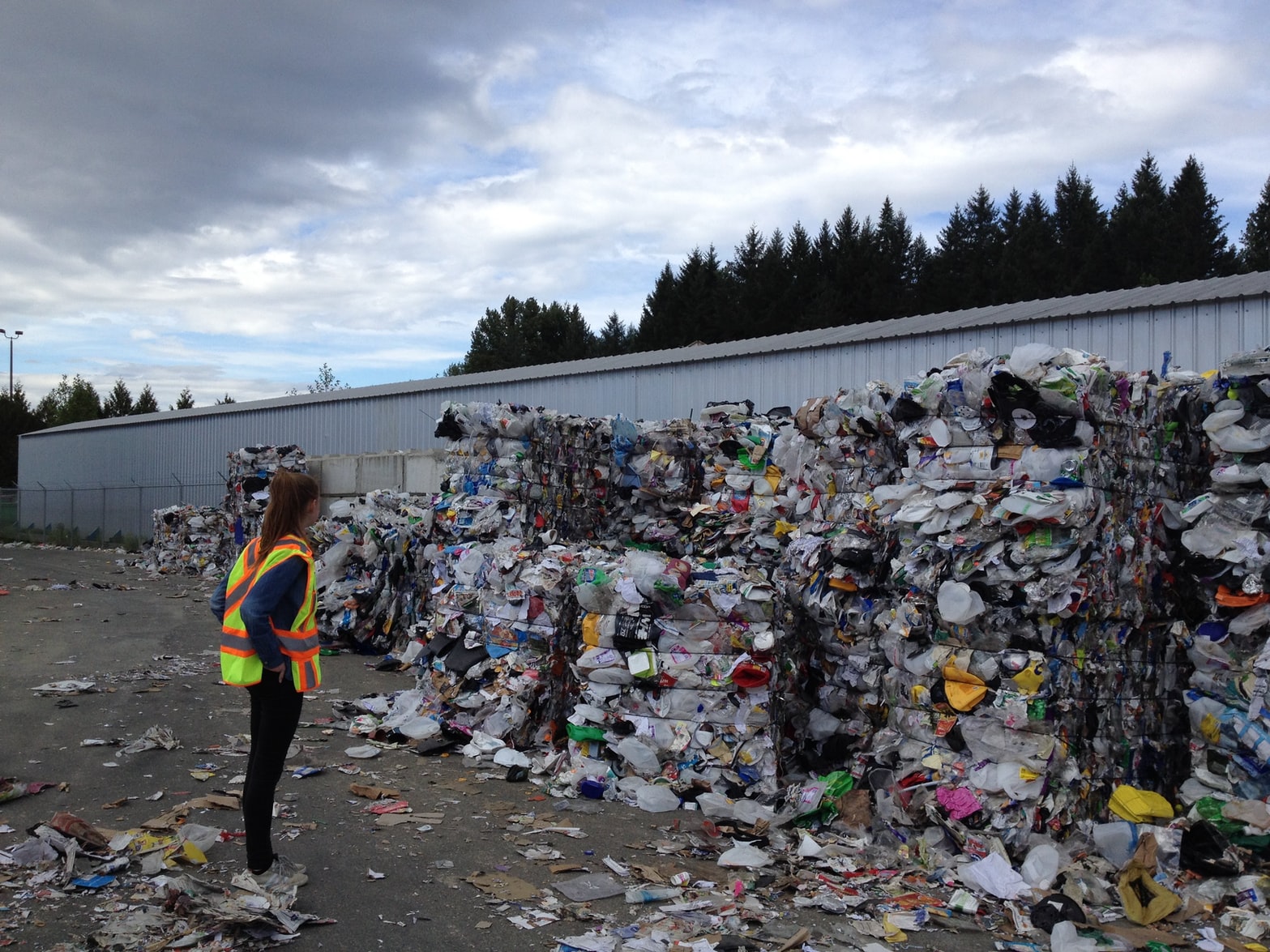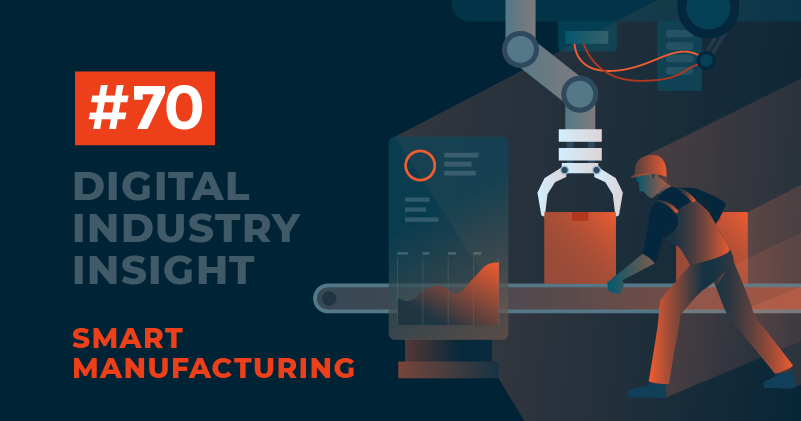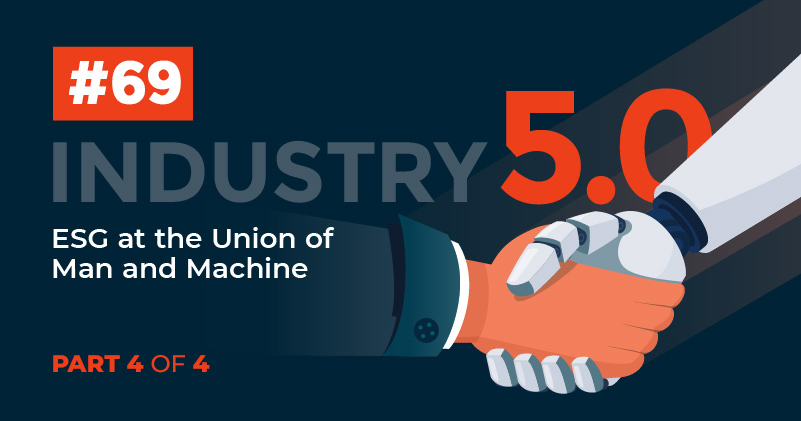Digital Insights #59
ESG and Manufacturing
Ken Forster
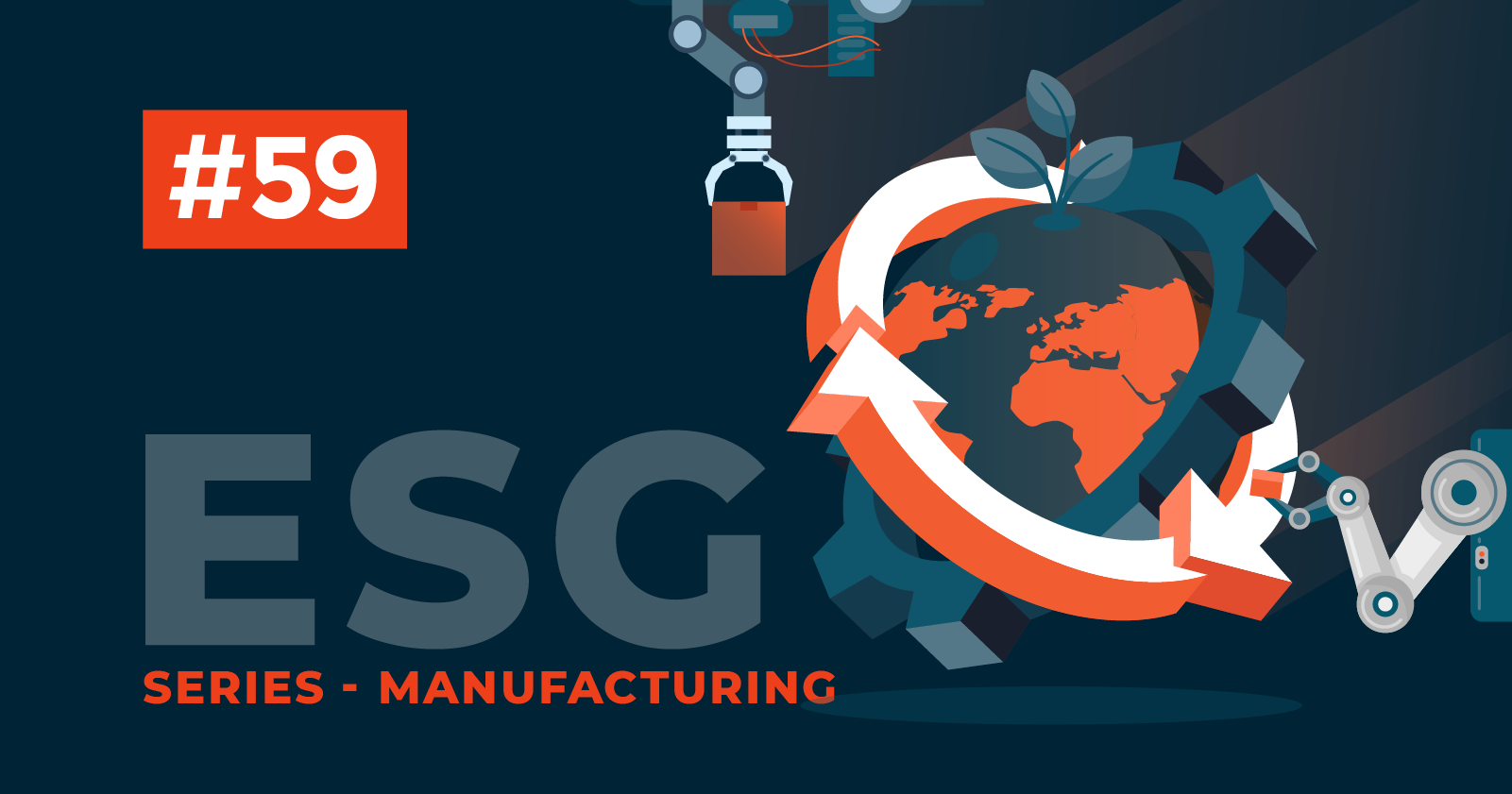
Manufacturing Gets Smarter About ESG
As we’ve explored the growing importance of ESG (Environmental, Social, and Governance) factors driving investment decisions, the growing capital inflows go to companies that elevate their ESG stories and characteristics to appeal to institutional investors. As a result, there’s growing investor emphasis on companies that can demonstrate their ESG bona fides. In last year’s letter, BlackRock’s chairman and CEO Larry Fink wrote, “The more your company can show its purpose in delivering value to its customers, its employees, and its communities, the better able you will be to compete and deliver long-term, durable profits for shareholders.”
Manufacturing Spans a Broad Scope
The Manufacturing sector encompasses a broad array of sectors, specialties, geographic scope, and firm size – ranging from automobile makers to electronic component manufacturers to makers of heavy equipment, medical devices, tools, clothing, toys – even agriculture and food processing. Unlike sectors like energy, which must reckon with predisposed investor skepticism when it comes to ESG – related perceptions, manufacturers span a broad range of “dirty” and “green” characteristics depending on the type of business.
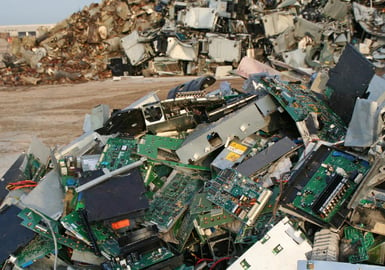

Environmental Impact of Manufacturing
One of the core areas of ESG focus centers on the environmental impact, and this encompasses several different areas, including sources of energy (whether clean or carbon-based), the type of materials used in manufacturing (whether they can be recycled or not), the type of waste products generated by manufacturing (and how they are disposed of), as well as other ways that the manufacturing process affects the air, water, and soil. In particular, the electronics manufacturing industry has been addressing the challenges of e-waste. Of the $206 billion spent on consumer electronics in the U.S. in 2012, only 29 percent of the resulting e-waste generated was recycled.
Steel production is notoriously “dirty,” producing air pollution, toxic wastewater, and significant greenhouse gas emissions. The manufacture of clothing also involves the use of multiple types of chemicals, many of them toxic, along with the manufacture of cosmetics and skincare. Food production is also a notable contributor to greenhouse gasses.

Social Impact of the Labor Force
Manufacturing in some industries is highly labor-intensive, particularly electronics and apparel, where there are large operations in developing countries where labor regulations are less stringent. The Social concerns around sweatshops have been a significant issue for the fashion industry, where there is a growing emphasis on ethical treatment of workers in the supply chain. In particular, there is much focus on labor conditions in China, where there are widespread allegations of forced labor and harrowing working conditions. Nike has faced criticism for its operations and has worked for many years to improve its transparency and commitments to upholding labor standards across its outsourcing partners, particularly in South Asia.

A Growing Focus on Sustainability
There are efforts underway to advance principles of Sustainable Manu factions, particularly in emerging economies. The challenge is to balance the need for growth and jobs with managing pollution and environmental degradation. The Environmental Protection Agency in the U.S. is working to provide manufacturers with ways to improve their sustainability efforts. In addition, the U.N.’s Sustainable Manufacturing and Environmental Pollution (SMEP) initiative is working on ways to help reduce the environmental, health, and socio-economic impacts of the manufacturing sector, along with reducing the impact of plastic waste.
According to Yasmine Zarabi of Parsable, ESG contributes to corporate cash flow in five ways by
- Facilitating top-line growth
- Reducing costs
- Minimizing regulatory and legal interventions and fines
- Increasing employee productivity and
- Optimizing investment and capital expenditures.
Using Technology to Advance ESG Objectives
Achieving ESG objectives for manufacturers, according to Zarabi, requires visibility, traceability, and data analytics – the capabilities and information that executives need to make the best long- and short-term decisions. Visibility (how well a company can track its operations), Traceability (how well a company can follow the path and process of inputs), and Data analytic (how to understand data and leverage insights) are all enabled by technology. Combining Operational Technology and Information Technology (IT/OT) has been a core principle of Digital Industry for efficacy and financial benefits – increasingly it's the means to achieve sustainability goals that are critical for manufacturers to deliver on ESG objectives.

Momenta is the leading Digital Industry venture capital firm accelerating digital innovators across energy, manufacturing, smart spaces, and supply chain. Led by deep industry operators across its venture capital, strategic advisory, and executive search practices, Momenta has made over 50 investments with notable exits to SAP, PTC, and Husqvarna Group.
Schedule a free consultation to learn more about our Digital Industry practice.

